#human intelligence consultant
Text
"Healing Hearts with Natalia Rachel: Nurturing Resilience in Children - Understanding Trauma and Mental Health"
Explore the transformative insights of Natalia Rachel as we delve into the crucial dialogue surrounding childhood trauma and mental health. Join us on a profound journey guided by Natalia's expertise and compassion, as we uncover strategies to nurture resilience in children. Together, let's amplify Natalia Rachel's message of healing and empowerment for our youngest hearts and minds.
For a detailed exploration, you can visit the article HERE.
#trauma recovery with natalia rachel#global keynote speaker#human intelligence consultant#mental health therapist
0 notes
Text
0 notes
Link
Discover the future trends of AI in the healthcare industry with Nolij Consulting's expert analysis. Stay ahead with our in-depth insights on enterprise architecture
#application of ai in healthcare industry#health and human services artificial intelligence (ai) in usa#use of ai and robotics in healthcare industry#ai ml consulting
0 notes
Text
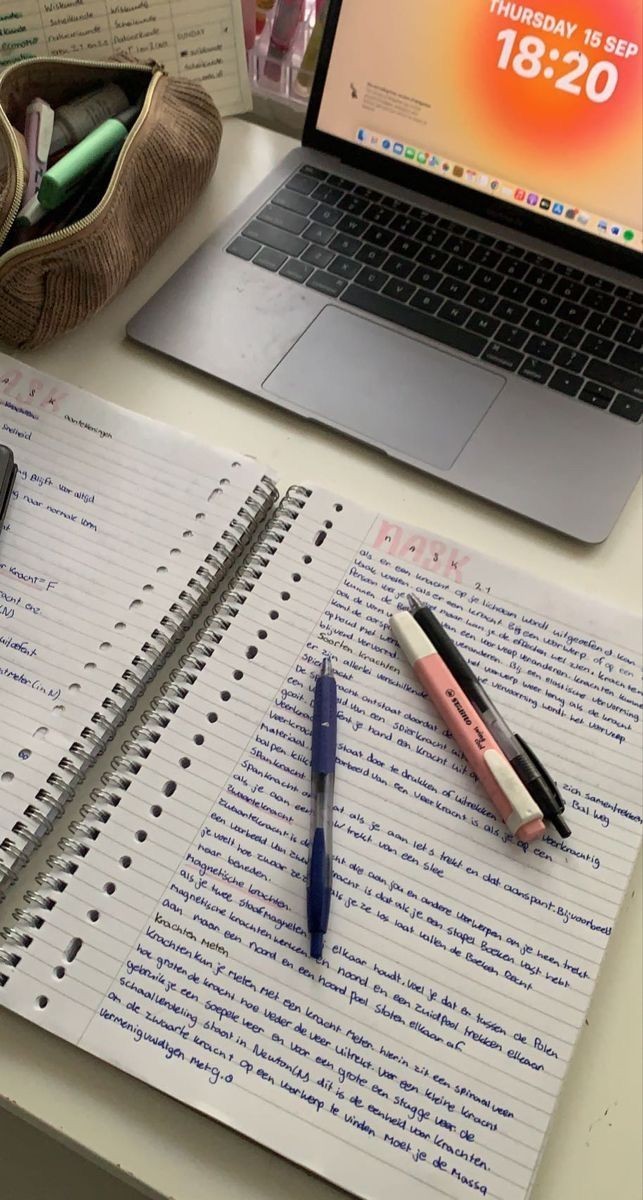
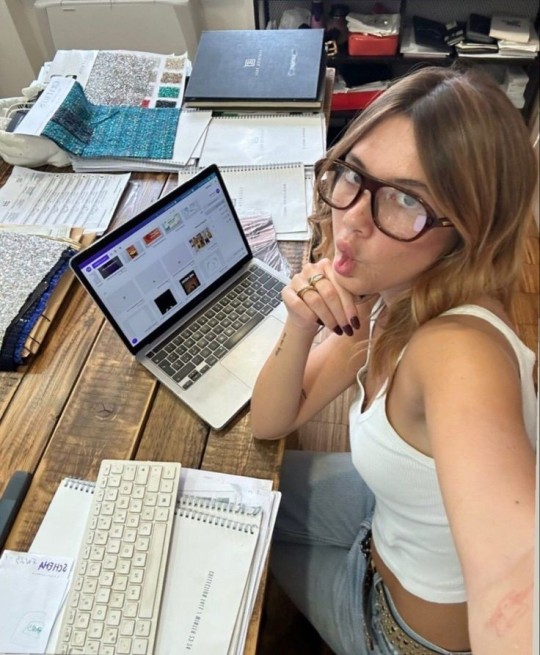

❥﹒♡﹒☕﹒ 𝗯𝗲 𝘀𝗺𝗮𝗿𝘁𝗲𝗿 ( 𝗮𝗰𝗮𝗱𝗲𝗺𝗶𝗰𝗮𝗹𝗹𝘆 𝗯𝘂𝘁 𝗻𝗼𝘁 𝗼𝗻𝗹𝘆 !! )
𝟭. improve your writing skills ( ✒️ )
i feel that not everyone has the perception of how important it is to know how to write. you don't have to be a poet, nor the new emily brontë, but fluid, conscious, rich writing makes the difference. really. you could write a page without saying anything at all, but if that damn page is written good and smoothly, then you can be sure that you will get extra points. take the time to improve your writing skills, the best advice i have for doing so is reading. read as much as you can. read novels (non-fiction in this case doesn't help because the content is preferred rather than the form), read contemporary authors – you don't necessarily have to read sophocles' tragedies, but read quality stuff. expand your vocabulary, your knowledge of syntax, learn to use punctuation! and then write, tell stories, write love letters, write reviews of films, books, cultural festivals, open a blog on tumblr and write to practice, reread what you write ad nauseam, until it is perfect, until the form of your essay is pulitzer prize worthy.
bonus some of my favourite authors (tell me in the comments about yours!): ian mcewan, banana yoshimoto, haruki murakami, george orwell, josé saramago, albert camus, khaled hosseini, hanya yanagihara
𝟮. develop critical thinking ( 💭 )
if you have always studied passively by absorbing information and vomiting it onto a test sheet then you have wasted your time. taking on information is not enough, you need to know how to rework it and develop your own idea about it. especially in the arts and literature one may disagree with certain information provided by a textbook. developing critical thinking is not easy, especially due to the school system that teaches us to standardize thinking. always consult all available sources on a given topic, compare them, analyze contradictions. it might be difficult and tiring – our brain spends more energy processing two conflicting pieces of information than processing two pieces of information that agree – but it will be worth it. by practicing critical thinking and improving your argumentation skills, you will not only be able to improve in your studies, becoming able to present complex topics and make interdisciplinary connections, but also in daily life, you will become much less influenced and manipulated by external information.
𝟯. find yourself an interest ( 🌷 )
it could be anything, but find an interest that excites you and you enjoy and do research about it. watch videos, documentaries, read articles. it doesn't have to be school-related, it must be an external topic that you are passionate about and that allows you to rediscover the joy of studying and learning every time school seems to suffocate it. sometimes i'm not in the mood to study for exams, so i dedicate myself to my personal research and finally find my spark, my seek for knowledge. for example, my interest is true crime, it has always fascinated me since i was little, but yours could be wild animals, makeup, comics, ships, planes, ocean flora, literally anything. there is no constraint.
𝟰. analyze your mistakes and recognize your wrongs ( 🫒 )
there is no shame in making mistakes. everyone makes mistakes, we are human, but the real sin is getting bogged down in mistakes, refusing to acknowledge them, and continuing to make them again and again. we should be continually growing, continually discovering ourselves, both intellectually and emotionally. how many of you were the "gifted kid" when you were little and then grew up into burned out high school / uni students desperately seeking academic validation? there comes a time when talent isn't enough, you have to put in the effort, and this doesn't make you less intelligent or gifted, in fact, quite the opposite. dedicating time and attention to your personal and intellectual growth also means having to ruminate on your mistakes. it's scary, but it's the most effective way if you really want to improve. take a notebook and at the end of the day reflect on the highlights and the wrongs, what you could have done better, where you would like to push forward tomorrow, what you achieved today. did you make a mistake? first ask yourself why and then look for a way to solve the problem, make every bad moment a lesson, a brick on which to build the version of you you wanto to become tomorrow.
𝟱. don't be afraid of doing researches ( 🧃 )
the amount of fake news and misinformation online is appalling. opening any app like tiktok or instagram we are inundated with information that is often (not always, but not so rarely) inaccurate. don't be afraid to conduct your own research, if you have time to mindlessly scroll through tiktok you will also have five minutes to read an article regarding that information provided. don't know the meaning of a word? look it up before using it. not sure about a piece of information? check it before using it in your argumentation. in the age of immediate access to data we have no excuse to be superficial.
𝟲. master communication ( ♟️ )
mastering communication is essential in both personal and professional realms. it's the cornerstone of building meaningful relationships, whether it's conveying ideas effectively in academia or fostering connections in the workplace. developing strong communication skills not only enhances your ability to articulate thoughts but also empowers you to listen actively, empathize with others, and resolve conflicts constructively. ultimately, honing these skills cultivates confidence, credibility, and success in all aspects of life.
𝟳. push yourself out of your comfort zone ( 🧸 )
build your confidence. confidence is uncomfortable. don't be afraid of it. you are young, this is the right time to experiment, take risks, discover who you really are. this is the best time for you to do those things that you would otherwise never do, you don't want to regret later in life that you didn't accept that scholarship, that trip abroad, that job opportunity, because you didn't feel comfortable enough. do things that take you out of your comfort zone until everything becomes your comfort zone. go on solo dates, be a social butterfly, tell the girl at the bookstore you love her t-shirt, go to the theater alone, eat at a restaurant alone, take that trip. if it goes badly, you'll only have one funny story to tell.
𝟴. stay informed about the news (but not too much!) ( 🌍 )
this might be controversial, but: stay informed about the news, just don't overdo it. personally, i am an easily influenced person and i realized that being constantly exposed to the bad things happening in the world had drained me and made me terribly depressed. don't get me wrong, you need to be informed about what's happening in the world and in your country, just being constantly surrounded by horrible news repeated ad nauseam on TV programs is of no use. be aware.
#college#education#school#academia#note taking#student#study aesthetic#study blog#study inspiration#study motivation#academic validation#chaotic academia#light academia#dark academia#university student#architecture student#i should study#study tips#student life#study notes#studyblr#studyinspo#studyspo#uni student#university life#uni life#university#smart#be smart#become smarter
443 notes
·
View notes
Note
Hii! Can you write a little something with Spencer Reid who doesn't know yet he's in love with his best friend? Maybe she works with him in the BAU or something?
I like your story with Eddie Munson and I'm reading La Chispa trying to practice my spanish. Thanks!
Holaaa! It's great to read you want to practice and i helped you with that. I don't know if I can take requests, because I'm not sure I can do a good job, but you asked politely and you shall receive! Here's a little something with Spencer Reid x bestfriend! Reader
Bestfriend Blurb
words: 1k
Warnings: go to this link!
Spencer rose slowly from his chair, letting his muscles adjust to the new posture after hours of sitting, filling out reports for the latest case. He checked the time on his watch to confirm he still had time to complete everything before his date. The girl he was meeting had worked as a consultant on one of their cases, and they had bonded over discussions about science fiction and mathematics. He was on the verge of giving in to Morgan's persuasion and asking for her number, but she did it first. Two weeks passed, and the night before, she had called him for a coffee and a donut. Nothing extravagant, just some conversation to see if they were still as compatible as he had initially thought. He was excited, but he knew the excitement stemmed more from the fact that his last date had been ages ago, and it felt good to be able to do something like this again.
He began to put one of his books in his leather bag, along with the fountain pen that accompanied him everywhere and that he would never leave at the mercy of a stranger's use. He opened the drawer of his desk to look for his old notebook; his palm shuffled a couple of loose papers until he found that worn leather notebook that had been given to him a couple of years ago. He closed the drawer and tossed the notebook into his bag while something floated gracefully from its interior to the floor. He bent down to pick it up and examined it carefully, turning the white side to discover one of your photos.
He could easily recite endless skills of yours: you were truly intelligent, sweet, capable, and empathetic. You were also incredibly fast, especially when it came to paperwork. You usually finished first with enough time to go for coffee for everyone, sit in your chair, and stroll with your camera while subtly taking photos of everyone. They hardly noticed as you captured each team member immersed in their own work.
You had been taking photographs forever. Hotchner had decided that as long as it didn't interfere with your performance, you could take your little camera anywhere. Far from being annoying, everyone could admit that your little hobby brought a certain sense of calm to the constant storm that meant working on one of the BAU cases. In the midst of the ugliest of human nature, there you were with your camera, gathering the small scraps of beauty that they couldn't see, but you could.
Spencer caressed the photographic paper; you had taken that photo after a particularly difficult case. Spencer and J.J had fallen asleep in his favorite seat on the jet, both heads resting on each other while the files from the finished case lay on the table in front of them. Spencer had heard the movement you made when removing the lens cap from your camera, had opened his eyes alertly while J.J continued sleeping with strands of hair on her face and an impassive expression. Seeing you hidden behind your camera and about to shoot, he relaxed and flashed a lazy, relieved smile, and then you took the photograph.
Spencer smiled at the reminiscence and heard your laughter from the coffee machine. Morgan had said something that seemed funny to you, and you briefly covered your mouth with your hand. Spencer put away the photograph and watched you until somehow you felt his gaze while Derek continued talking to you. Your eyes met Spencer's, and a few seconds passed. You raised the corners of your lips, curving them into a smile, and your eyes arched with a mixture of affection and admiration. Your gaze was calm, and you didn't seem upset because he had canceled your Doctor Who Friday at the last minute for the date with the consultant. At this moment, Spencer couldn't think of a single valid reason to go that was more important than all the reasons he had to stick to his Friday routine of pizza, chess classes, and a marathon of his favorite show with you. Not when you smiled at him like that for a few seconds, and everything he felt just for that brief moment made him think he would be stupid to let go of the opportunity to prolong that feeling in the pit of his stomach all Friday night. Just for that smile.
He approached you while you tried to stop laughing at whatever was so amusing coming from Morgan's mouth, and you diverted your attention to him with curiosity.
"Shall we?"
Your forehead wrinkled slightly, somewhat disoriented.
"Don't you have a date?"
Spencer shrugged with a half-smile.
"We rescheduled," he explained, although the truth was that the girl still hadn't responded, but he hoped not to disappoint her too much.
You frowned. "Are you sure?"
Spencer nodded with the same smile. "Of course, dates can happen anytime, but Doctor Who, pizza, and chess?"
You smiled amusingly. "Only on Friday nights," you murmured in response, and then you said goodbye to Derek, joking about a date he had had the previous weekend. You circled around Spencer, walking toward your desk to get your things while Morgan watched Spencer, following you with his gaze. When Spencer met his friend's careful scrutiny, he saw him raise a little smile and shake his head amusingly.
"I see," he patted Spencer's shoulder. "Now I see it very clearly."
"I don't know what you're talking about."
"Of course you do," he said as a farewell, moving away from him with a relaxed posture just as you approached him with your bag on your shoulder and your camera hanging from your neck.
"Ready?" you asked, and Spencer nodded.
"Ready."
Bestfriend Blurb Masterlist:
#1- When he preferred your smile
#2- When he proved he knows you well
#3- When he wanted you to choose him
#4- When you wanted to make him smile
#5- When you he loved you and you loved him back
#criminal minds#criminal minds fanfiction#spencer reid#spencer reid x reader#Spencer reid x bestfriend!reader#spencer reid blurb
354 notes
·
View notes
Text
When Swiss cardiologist Thomas F. Lüscher attended an international symposium in Turin, Italy, last summer, he encountered an unusual “attendee:” Suzanne, Chat GPT’s medical “assistant.” Suzanne’s developers were eager to demonstrate to the specialists how well their medical chatbot worked, and they asked the cardiologists to test her.
An Italian cardiology professor told the chatbot about the case of a 27-year-old patient who was taken to his clinic in unstable condition. The patient had a massive fever and drastically increased inflammation markers. Without hesitation, Suzanne diagnosed adult-onset Still’s disease. “I almost fell off my chair because she was right,” Lüscher remembers. “This is a very rare autoinflammatory disease that even seasoned cardiologists don’t always consider.”
Lüscher — director of research, education and development and consultant cardiologist at the Royal Brompton & Harefield Hospital Trust and Imperial College London and director of the Center for Molecular Cardiology at the University of Zürich, Switzerland — is convinced that artificial intelligence is making cardiovascular medicine more accurate and effective. “AI is not only the future, but it is already here,” he says. “AI and machine learning are particularly accurate in image analysis, and imaging plays an outsize role in cardiology. AI is able to see what we don’t see. That’s impressive.”
At the Royal Brompton Hospital in London, for instance, his team relies on AI to calculate the volume of heart chambers in MRIs, an indication of heart health. “If you calculate this manually, you need about half an hour,” Lüscher says. “AI does it in a second.”
AI-Assisted Medicine
Few patients are aware of how significantly AI is already determining their health care. The Washington Post tracks the start of the boom of artificial intelligence in health care to 2018. That’s when the Food and Drug Administration approved the IDx-DR, the first independent AI-based diagnostic tool, which is used to screen for diabetic retinopathy. Today, according to the Post, the FDA has approved nearly 700 artificial intelligence and machine learning-enabled medical devices.
The Mayo Clinic in Rochester, Minnesota, is considered the worldwide leader in implementing AI for cardiovascular care, not least because it can train its algorithms with the (anonymized) data of more than seven million electrocardiograms (ECG). “Every time a patient undergoes an ECG, various algorithms that are based on AI show us on the screen which diagnoses to consider and which further tests are recommended,” says Francisco Lopez-Jimenez, director of the Mayo Clinic’s Cardiovascular Health Clinic. “The AI takes into account all the factors known about the patient, whether his potassium is high, etc. For example, we have an AI-based program that calculates the biological age of a person. If the person in front of me is [calculated to have a biological age] 10 years older than his birth age, I can probe further. Are there stressors that burden him?”
Examples where AI makes a sizable difference at the Mayo Clinic include screening ECGs to detect specific heart diseases, such as ventricular dysfunction or atrial fibrillation, earlier and more reliably than the human eye. These conditions are best treated early, but without AI, the symptoms are largely invisible in ECGs until later, when they have already progressed further...
Antioniades’ team at the University of Oxford’s Radcliffe Department of Medicine analyzed data from over 250,000 patients who underwent cardiac CT scans in eight British hospitals. “Eighty-two percent of the patients who presented with chest pain had CT scans that came back as completely normal and were sent home because doctors saw no indication for a heart disease,” Antioniades says. “Yet two-thirds of them had an increased risk to suffer a heart attack within the next 10 years.” In a world-first pilot, his team developed an AI tool that detects inflammatory changes in the fatty tissues surrounding the arteries. These changes are not visible to the human eye. But after training on thousands of CT scans, AI learned to detect them and predict the risk of heart attacks. “We had a phase where specialists read the scans and we compared their diagnosis with the AI’s,” Antioniades explains. “AI was always right.” These results led to doctors changing the treatment plans for hundreds of patients. “The key is that we can treat the inflammatory changes early and prevent heart attacks,” according to Antioniades.
The British National Health Service (NHS) has approved the AI tool, and it is now used in five public hospitals. “We hope that it will soon be used everywhere because it can help prevent thousands of heart attacks every year,” Antioniades says. A startup at Oxford University offers a service that enables other clinics to send their CT scans in for analysis with Oxford’s AI tool.
Similarly, physician-scientists at the Smidt Heart Institute and the Division of Artificial Intelligence in Medicine at Cedars-Sinai Medical Center in Los Angeles use AI to analyze echograms. They created an algorithm that can effectively identify and distinguish between two life-threatening heart conditions that are easy to overlook: hypertrophic cardiomyopathy and cardiac amyloidosis. “These two heart conditions are challenging for even expert cardiologists to accurately identify, and so patients often go on for years to decades before receiving a correct diagnosis,” David Ouyang, cardiologist at the Smidt Heart Institute, said in a press release. “This is a machine-beats-man situation. AI makes the sonographer work faster and more efficiently, and it doesn’t change the patient experience. It’s a triple win.”
Current Issues with AI Medicine
However, using artificial intelligence in clinical settings has disadvantages, too. “Suzanne has no empathy,” Lüscher says about his experience with Chat GPT. “Her responses have to be verified by a doctor. She even says that after every diagnosis, and has to, for legal reasons.”
Also, an algorithm is only as accurate as the information with which it was trained. Lüscher and his team cured an AI tool of a massive deficit: Women’s risk for heart attacks wasn’t reliably evaluated because the AI had mainly been fed with data from male patients. “For women, heart attacks are more often fatal than for men,” Lüscher says. “Women also usually come to the clinic later. All these factors have implications.” Therefore, his team developed a more realistic AI prognosis that improves the treatment of female patients. “We adapted it with machine learning and it now works for women and men,” Lüscher explains. “You have to make sure the cohorts are large enough and have been evaluated independently so that the algorithms work for different groups of patients and in different countries.” His team made the improved algorithm available online so other hospitals can use it too...
[Lopez-Jimenez at the Mayo Clinic] tells his colleagues and patients that the reliability of AI tools currently lies at 75 to 93 percent, depending on the specific diagnosis. “Compare that with a mammogram that detects breast tumors with an accuracy of 85 percent,” Lopez-Jimenez says. “But because it’s AI, people expect 100 percent. That simply does not exist in medicine.”
And of course, another challenge is that few people have the resources and good fortune to become patients at the world’s most renowned clinics with state-of-the-art technology.
What Comes Next
“One of my main goals is to make this technology available to millions,” Lopez-Jimenez says. He mentions that Mayo is trying out high-tech stethoscopes to interpret heart signals with AI. “The idea is that a doctor in the Global South can use it to diagnose cardiac insufficiency,” Lopez-Jimenez explains. “It is already being tested in Nigeria, the country with the highest rate of genetic cardiac insufficiency in Africa. The results are impressively accurate.”
The Mayo Clinic is also working with doctors in Brazil to diagnose Chagas disease with the help of AI reliably and early. “New technology is always more expensive at the beginning,” Lopez-Jimenez cautions, “but in a few years, AI will be everywhere and it will make diagnostics cheaper and more accurate.”
And the Children’s National Hospital in Washington developed a portable AI device that is currently being tested to screen children in Uganda for rheumatic heart disease, which kills about 400,000 people a year worldwide. The new tool reportedly has an accuracy of 90 percent.
Both Lopez-Jimenez and Lüscher are confident that AI tools will continue to improve. “One advantage is that a computer can analyze images at 6 a.m. just as systematically as after midnight,” Lüscher points out. “A computer doesn’t get tired or have a bad day, whereas sometimes radiologists overlook significant symptoms. AI learns something and never forgets it.”
-via Reasons to Be Cheerful, March 1, 2024. Headers added by me.
--
Note:
Okay, so I'm definitely not saying that everything with AI medicine will go right, and there won't be any major issues. That's definitely not the case (the article talks about some of those issues). But regulation around medicines is generally pretty tight, and
And if it goes right, this could be HUGE for disabled people, chronically ill people, and people with any of the unfortunately many marginalizations that make doctors less likely to listen.
This could shave years off of the time it takes people to get the right diagnosis. It could get answers for so many people struggling with unknown diseases and chronic illness. If we compensate correctly, it could significantly reduce the role of bias in medicine. It could also make testing so much faster.
(There's a bunch of other articles about all of the ways that AI diagnoses are proving more sensitive and more accurate than doctors. This really is the sort of thing that AI is actually good at - data evaluation and science, not art and writing.)
This decade really is, for many different reasons, the beginning of the next revolution in medicine. Luckily, medicine is mostly pretty well-regulated - and of course that means very long testing phases. I think we'll begin to really see the fruits of this revolution in the next 10 to 15 years.
#confession I always struggle a lil bit with taking the mayo clinic seriously#because every. single. time I see it mentioned my first thought is mayonnaise#the mayonnaise clinic#lol
139 notes
·
View notes
Text
Ashlesha: The Villain Era Nakshatra
Ashlesha nakshatra can create poison to destroy their enemies. They also have the ability to restrain their destructive powers and hold poison within themselves. As I said in my previous post, Ashlesha embodies the demonic feminine and showcases qualities of the dark side of the feminine. But we need to understand that "darkness" is a spectrum and can be defined/portrayed in a variety of ways.
In this post I'll explore various tropes that Ashlesha natives portray on screen.
Peyton List, Ashlesha Sun plays Poison Ivy in Gotham
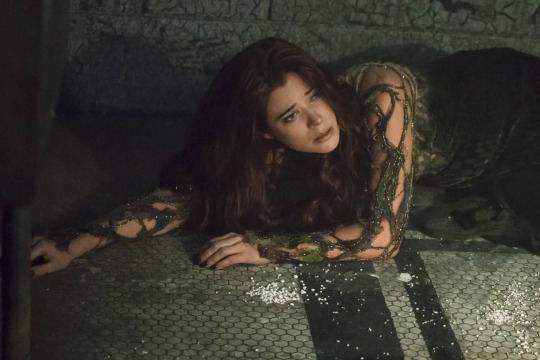
"The thing I love most about Poison Ivy is her walking that line between bastion of Mother Nature and psycho Eco-terrorist. She sees herself as the hand of Mother Nature. If Mother Nature were "God," then Ivy would be her "Jesus." She defends the defenceless nature of the world and truly believes in her cause. Maiming, mauling, and mutilating are extreme measures, but it's nothing compared to what irredeemable cruelties humanity's done to the world of nature. Ivy always sees the greater good as she punishes those who deserve it."— J. T. Krul (comic book writer)
This describes Ashlesha natives quite well. They truly believe that the people they hurt deserve it. The aspect of serving karma/justice is a very prominent one.
Poison Ivy has the following abilities:
Genius-level intellect
Manipulation of plants and toxins
Decelerated aging
Expert seductress
These can all directly be connected to Ashlesha. Being a Mercury ruled nak, these natives are naturally intelligent and their minds work very fast, given the mythology of this nak, their connection to toxins and poisons is a gift given to the Ashlesha native. Mercurial women often look very young/youthful and maintain this youthfulness well into their 30s and 40s and on. This nak's deity is Nagas, the serpent God and serpent connection in any nak is a strong indicator of potent sexuality and seductive energy.
Poison Ivy possesses a poisonous touch and is characterized as a "supervillain" or "antiheroine".
I had mentioned in my old post about how movies featuring Ashlesha women have a common trope of them being abused, gaining power through that violent experience and then using those powers to go after all the bad guys.
Similarly, Poison Ivy was a botanist who was persuaded by Marc LeGrand to assist him with the theft of an Egyptian artefact containing ancient herbs. Fearing she would implicate him in the theft, he attempts to poison her with the herbs, which are deadly and untraceable. She survives this murder attempt and discovers she has acquired an immunity to all natural toxins and diseases.
2. Jennifer Lawrence, Ashlesha Sun plays Katniss Everdeen in The Hunger Games

if you're familiar with the books or the movies you would know that there is a heavy emphasis on Katniss' resorting to manipulation to skew things in her favour, both on and off the arena.
She's competing in a survival reality show where tributes have to kill each other for the entertainment of the masses but she manages to turn things around in her favour through media manipulation, using everything to her advantage.
This emphasizes on Ashlesha's mercurial ability to play with perception and skew the narrative in their favour.
Katniss is an impoverished girl from the poorest district with no chances of winning but she relies on things other than brute strength to see her through the Games.
3. Barbra Streisand, Ashlesha Moon as Yentl in Yentl
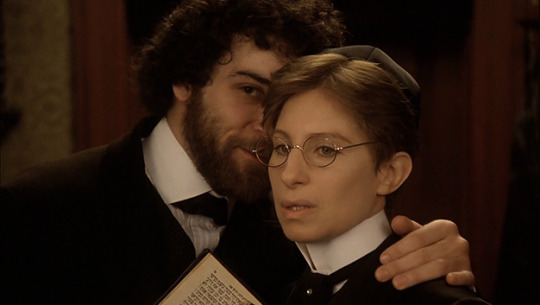
This movie is about a girl who disguises herself as a guy to go to school. She falls in love with her male classmate and his gf falls in love with her (believing her to be a guy).
Claire had said in her Ashlesha video about how WLW themes in cinema often involve Cat yoni gals (Punarvasu or Ashlesha)
4. Catherine Deneuve, Ashlesha Moon in The Hunger (1983)
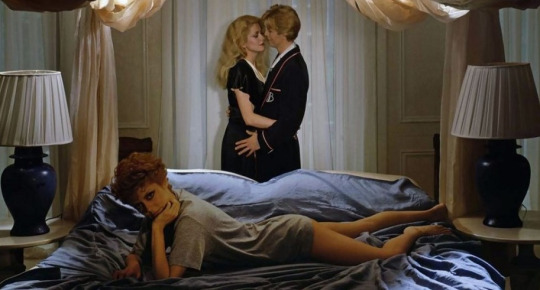
this is yet another very Ashlesha coded movie about a vampire (played by Deneuve) and her aging partner and the doctor he consults to help with his condition and the homoerotic bond that develops between these women.
the fact that Deneuve is playing a vampire (i've noticed Ashlesha playing demonic/monstress esque characters a lot) and that "aging" is a main plot point (vampires don't age) is vv intriguing since mercurials are the most "young/youthful looking"; Mercurials are essentially teenagers even as they grow older, they don't "age" the way most people do, not just physically but also mentally and of course, it wouldn't be an Ashlesha coded film without some WLWism in it.
A major reason why Cat yoni girls are drawn to other girls or to non-penetrative intercourse is because sex is vv painful for female cats. A male cat's penis is barbed, and these little spikes scrape along the female cat's vagina during copulation, making sexual intercourse vv painful for them. I have noticed that many Cat yoni women irl tend to have vaginismus or other conditions that make penetrative intercourse unpleasant or difficult for them. Making love to another woman or intercourse with a partner (male or female) that's largely centred around foreplay is what feels pleasurable to these natives. More than the act of PIV, its intimacy that they crave from sex. They can be very passive in bed and find it hard to orgasm with just PIV. A low libido is also likely. They're not prudish, they're very imaginative with what they desire but when it comes to actually physically expressing themselves, they're like cats, they can't express it.
5. Audrey Tautou, Ashlesha Sun in Priceless (2006)
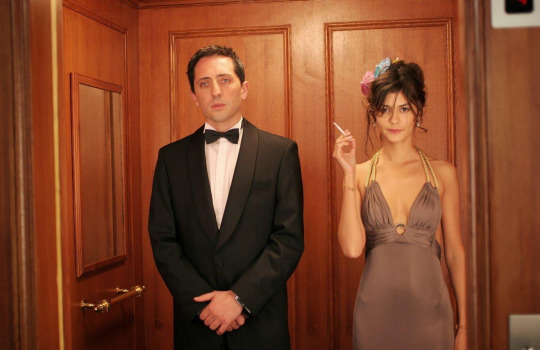
Audrey Tautou plays a gold digger-y woman (a common Ashlesha trope) who mistakes a bartender to be a wealthy man. She later helps him work as a gigolo for a wealthy woman.
Ashleshas are skilled at manipulation (this is often described in a negative light by many astrologers but manipulation is a skill like any other and can be used for good and bad reasons). This whole movie revolves around one woman's ability to manipulate men into giving her what she wants and by teaching this to another person, she is emphasizing the fact that this is a skill that can be picked up (an essential Mercurial principle because Mercury is about that which we cultivate not what we've been innately gifted with).
6. Marilyn Monroe, Ashlesha Rising in Gentlemen Prefer Blondes
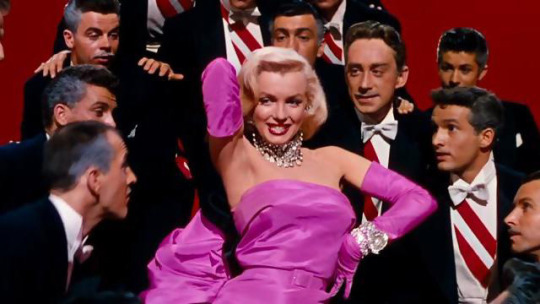
MM plays a gold digger who carefully uses her feminine charms and allure to get with wealthy men. Understanding how to channel femininity in ways that benefit them is a very Cancerian woman thing.
If we were to consider the fact that Marilyn basically created a whole alter ego, adopted certain mannerisms, dressed a specific way, used a fake baby voice, styled and kept up a whole persona then we can see the positive manifestation of Ashlesha and Cancer's manipulative feminine nature. She wasn't born Marilyn, she became her through her carefully cultivated charm. This is peak Mercury, peak Cancer behaviour.
Sidenote: I've noticed many Cancer women speaking in a fake baby voice tbh hehe, Paris Hilton (Pushya Moon) also does this. Paris is also a great example of Cancerian performative femininity. She managed to convince the whole world she was a dumb blonde heiress when she was anything but. She created a persona for herself and played that character to the t. Her hyperfeminine mannerisms, almost caricatur-ish personality has had a lasting impact on pop culture. She herself has come out to say that she "was playing a character".
7. Anna Kendrick, Ashlesha Sun in Alice, Darling (2022)

this movie is about a manipulative, abusive and controlling relationship based on anna kendrick's real life experiences. Ashlesha women and Cancer women in general are very susceptible to relationships of this sort. It starts at home usually, these women have very dysfunctional relationships with their mothers and go on to form unhealthy and toxic romantic relationships (if unevolved).
8. Ashlesha's connection to Snow White
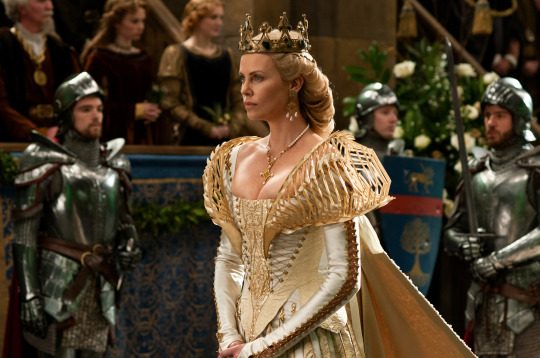
Ashlesha Sun & Moon, Charlize Theron as the evil stepmother in Snow White & the Huntsmen

Ashlesha Moon Lily Collins as Snow White in Mirror Mirror
Snow White's story depicts the OG toxic mother-daughter dynamic which is a common theme in the lives of many Ashlesha natives. Receiving step daughterly treatment from your own mother and having a sibling who is more favoured than you is another common theme.
We see this play out in real life with Bella and Gigi Hadid who both have Ashlesha Mars as their atmakaraka and amatyakaraka respectively.
Many Ashlesha women play the toxic mother in tv shows and movies (Vera Farmiga, Ashlesha Moon in Bates Motel) but its equally likely for them to play the daughter who is at the receiving end of the abuse.
A major way that this "toxicity" manifests is through highly co-dependent relationships with their mothers, who essentially run their lives for them and keep them "trapped" in childlike passivity. The thing is Ashlesha women almost kinda like it this way, they want to be taken care of, they're needy and would much rather have someone else do everything for them. Rising above this passivity is their biggest challenge.
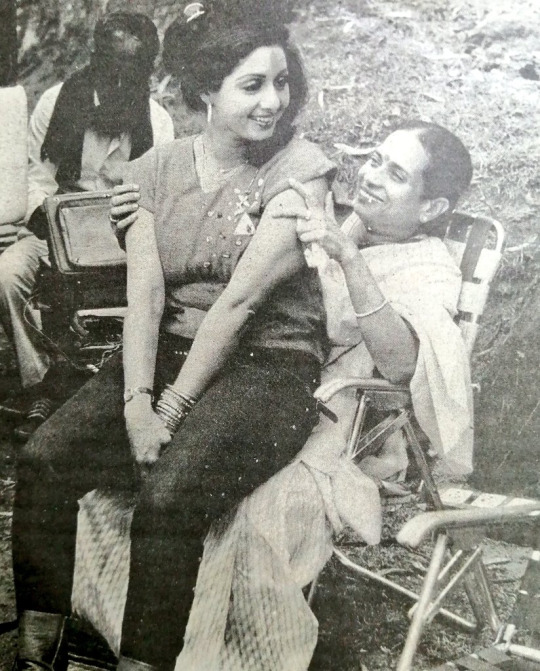
The Indian actress Sridevi (Ashlesha Sun & Stellium) was known for her highly co-dependent relationship with her mother. In the 80s during her peak, it was a running joke that you could ask Sridevi anything and she'd respond with "Ask Mummy". Sridevi, like many Ashlesha natives had a very childlike personality and was often described as lacking "mental maturity". The reality is that her mother micromanaged her life and made all her decisions, controlled her finances and told her what she could do and couldn't do until she passed away when Sri was well into her 30s. She forced Sri into films when she was barely a toddler and never gave her any formal education. Of course Sridevi never described this relationship as "toxic". Most of these natives wouldn't because its been ingrained into them that they're incapable of getting anything done on their own and "need" their mother to do things for them. They're gaslit into believing they're inept. (Sridevi was also known for speaking in a baby voice 😌)
Ashlesha lies entirely in Cancer rashi which means they are lost to the watery depths of Cancer's influence, the combination of Moon & Mercury always makes one prone to manipulation and although this is considered a negative, I absolutely believe it can be manifest in positive ways. However it IS hard.
The feminine/ yin urge to absorb energy manifests itself in an absolutely self-serving here. Imo this is by nature self serving always however other Cancer rashi naks have the ability to give to others in ways an Ashlesha native can't.
Ashlesha is cancer at its most passive, absolutely unable to "give"; this means they feel easily drained by others and have to be very selective with who they give their energy to. Women in society are harshly judged for how much of their energy they give to others which is why Ashlesha women who are largely self contained are viewed as "toxic", because our society looks down upon women who only exist for themselves, we're all taught to "give". A woman who cannot do so is seen as "toxic" because its "selfish" to keep to yourself. This is why Ashleshas are so grossly misunderstood.
Mercurial women have a very complicated relationship with sex and sexuality. This is most evident in the case of Ashlesha women. Cat yoni is the most restrictive yoni and this is not only apparent in their sexual preferences and relationships but in the way they conduct themselves generally. They are usually introverted and struggle the most with their tendency to be passive because cats are by nature, very lethargic creatures who are self involved and seldom seek outside company.
The other two mercury naks, Jyeshta (rabbit yoni) and Revati (elephant yoni) have a very different approach to sexual matters. For Jyeshta natives, its the frequency of sex that matters, since rat/rabbit yoni is considered the most sexual. They usually have a high sex drive but sex itself is impersonal for them.
However for Revati natives, given that their yoni is the largest land animal, more than frequency its the quality of sexual intimacy that satiates them. They are thrill seekers. Sex that is ordinary or "vanilla" does not fulfil them; there has to be an element of adrenaline rush, which BDSM or other taboo relationships can provide but its rare for these natives to feel pure, naked desire for someone, they crave the thrill of sex itself.
Overall, a major focus in the lives of Ashlesha natives is building an identity for themselves. Many of them cultivate a self that's entirely different to who they were growing up, with a very apparent change in style/mannerisms etc. Like snakes (to whom they are closely linked) they need to shed their skin and renew themselves again and again.
Their Mercurial gifts of intellect, wit and street smarts see them through these and allow them to flourish in every avatar.
#sidereal astrology#astrology notes#astrology observations#vedic astro notes#astrology#vedic astrology#astro notes#astro observations#nakshatras#astroblr#ashlesha
304 notes
·
View notes
Text
Town of Puddle: Vampires
Last updated 08/14/2023
In the world of Puddle, vampire is a catch-all term for any humanoid creature that needs to consume something from a human to survive - usually human flesh or blood, but some subsist on other things such as emotions, dreams, etc. The most common vampire is the classic undead vampire. Vampires are usually immortal or very long-lived.
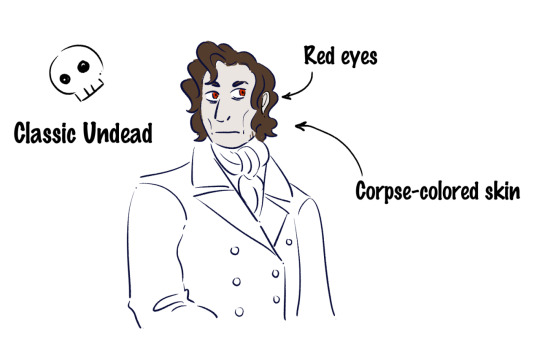
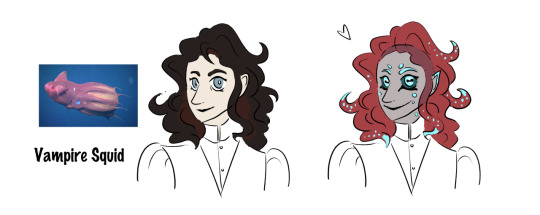
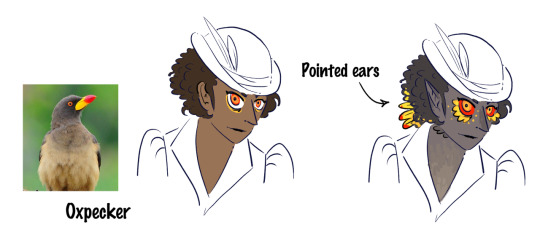

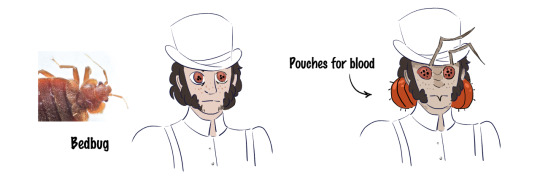

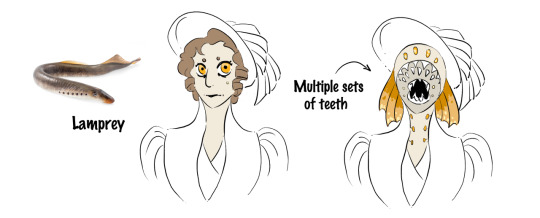

While vampires are thought to have any number of origins, there is in fact one singular origin from which they descend. The first vampires were nephilim, the children of the demon Asherah and the angel Rapha. Asherah was the queen of a kingdom named Hell. Tales of this kingdom and her rule would pass through the ages and become distorted into mythology. Rapha was an angel of blood with a terrible hunger his children would inherit. Both are long dead and gone, but their influence on their descendants lingers. Common vampiric powers, such as glamours and shapeshifting, come from these ancient ancestors.
Asherah and Rapha’s children were destined to rule, for a time anyway, over all corners of the earth. Some were more suited to the forests or mountains or cities, others to the sea or even the skies. These first vampires would eventually give rise to all the different types of vampires we see today.
The kingdoms of vampires were matriarchal, modeled after Asherah’s own kingdom. Matriarchs are a special type of vampire suited to rule, and childbirth. Mundane vampires have difficulty bearing children, most being completely infertile. Natural-born vampires are thus rare but not unheard of. Most vampires nowadays are turned, from human to vampire as other creatures are immune or will simply die to vampirism.
A childe (plural, childer) is a vampire that has been turned by another, who is their sire. One of the few remaining widespread cultural norms for vampires, is that a sire has some degree of responsibility for their childer shortly after they are turned, and it is good practice to teach them local vampire rules, history, and etiquette.
While most vampires prefer solitary existences, many vampires form groups for mutual support. These groups often vie for power in shadowy undergrounds that exist away from human eyes. A vampire group might be called a gang, a pack, or a coven.
Below are my named vampires so far. If you’re curious about even more, @wyrmzier also has their own Puddle vampire characters you can ask about.
Vivian Moon used to be human, but she was turned into a vampire. She is like a siphonophore, a colony inhabiting a human form. Because she is a colony of organisms she can survive grave injuries or even dismemberment, for short periods of time. When her limbs are separated from her body they have their own intelligence, like an octopus’s. Vivian works as a forensic consultant for a special precinct dedicated to investigating monster-related crimes.
Ethel Stone is Vivian’s friend in City Hall, who keeps her informed of political goings-on and secretly helps out her fellow vampires. Ethel is a lamprey vampire.
Teutho Melua is a vampiric pirate captain with a love of theatrics and parties. He is Vivian and Mordecai’s sire. Teutho is initially very narcissistic and bloodthirsty, but after some character development he becomes slightly less narcissistic. He is still bloodthirsty.
Mordecai Esadze is Teutho’s first mate. He is dark, serious, and grumpy, to balance Teutho’s more flashy personality. Mordecai is responsible and secretly more of a softie than he lets on.
Adelaide is Mordecai’s childe, his only one. As a human she sought the change, vampires call these sorts of humans “bite-chasers.” Now she manages a modest network of underground clubs and casinos, and in her spare time enjoys breeding snakes.
Lilian Heather is the adopted daughter of Samuel, and an up-and-coming actress.
Melanthios is an ancient vampire, thousands of years old and now more monstrous than humanoid. He is Menodora’s mate.
Malakos was the youngest of Menodora’s children, a cruel and egotistical vampire who controlled a small criminal empire on the Black Sea. He was Teutho’s sire, and was killed by Teutho and Mordecai.
Hyacinth is another of Malakos's childer, who pursues Teutho for a time.
Chise is Vivian’s mother, a bakeneko vampire. She abandoned Vivian at a young age, leaving her with no knowledge of her heritage.
Lycan was an ancient vampire, a child of Rapha and Asherah. His pursuit of a cure for vampirism led to the creation of werewolves.
Felisity is an ancient cat vampire, and a Matriarch. She was a queen of a small kingdom and was worshipped as an aspect of the goddess Bastet for many years, but eventually was dethroned and went into hiding.
247 notes
·
View notes
Text
Jay = High Intelligence, Low Wisdom
Kai = Low Intelligence, High Wisdom
Essay about this concept below the cut
Now these are all just my interpretations of the characters, I don't necessarily have hard evidence on hand to back all this up, but here we go:
I've been trying to put my finger on the Kai smart/dumb duality, and I think I can finally somewhat make out my thoughts. Kai is not smart. Book smarts don't come easily to him, he's not great at math, he's not great at overly complex stratagizing- but he's got a LOT of great knowledge in him.
Take the dragon healing in DR. He might not intuitively know how different medicines work or why, but he's got injured enough that he knows that type of information is important to know, and so he's forced it into his head. He couldn't tell you why the blue goop helpped the dragon, but he knew that it would, and that it would be important to remember that it would.
He's pretty good at navigating complex social situations, because he's good at reading people. Having had a history with extreme emotions, he knows how to take them into account, and knows how important it is to do so, even if it's not necessarily logical. I hate to say this, but he's very emotionally intelligent, which sounds kinda like an insult but is actually insanely valuable, because humans are inherently emotional creatures.
He's got a solid basis of common sense, and is constantly looking at the bigger picture. That's why he can come up with the best outline for a plan, because he can not think through the details. Now, if he tries to implement a plan of his without consulting others, he's probably going to miss some very important details, and screw himself over. But, he's most likely to have the best basic premise for an effective plan. This is why his intuition is usually correct. He's not logically thinking through the most likely scenario given all available factors, he's looking at every problem from the birds eye view, and is easily able to fill in the blanks, because he sees the whole picture. You can not tell me this kid knew Lloyd was the Green Ninja because he used logical deduction to eliminate all other possibilities, he had a gut feeling based on realizing the value of human life.
Now, sometimes you need details. And Kai is not good at those. He sucks at those. Big time. But he's self aware enough to know when those times are (most of the time, sometimes he wastes all his lives in a video game before talking to anyone else).
The thing all of these points have in common is that he's lived a very full life while making very many mistakes, and he's learned from all of them. He learns from his dumb mistakes, and is wise enough to know which lessons are worth holding on to.
Jay on the other hand... does not learn from his mistakes. He's got a real thick skull.
Inside that skull is a really smart guy who intuitively latches on to engineering and science concepts. He's got a whole heck of a lot of information that his brain is holding onto simply because it can. This man is all about the details. He gets hyperfixated on details to the point where it's a problem. He's the most likely to solve the intricate problem facing the team, forget that they need to stay hidden, and yell "I did it!". Good at details, bad at big picture. This is also why he usually gives up hope so easily compared to the rest of the team. He can not think long term, he can not see the bigger picture like Kai can, so road blocks in the current plan seem insurmountable.
Sure, he might have rigged an old sailing ship with rocket boosters, but he couldn't unscramble "darnagom" his logical problem solving skills are not what's carrying him.
My standby for the Jay dumb/smart duality is that he should have a significant amount of William Osman energy to him. He's very smart, and can work out how to solve intricate problems and make insane builds, but if making said things is a dangerous or dumb idea has never once crossed his mind, and if it has, he has actively chosen to ignore it. Jay's intelligence is much more creativity based than I think a lot of people like to think. Engineering is about slapping crazy ideas together which barely hold together at first- and that's Jay's brand of smarts.
If you compare this to Zane, that's the vital component that his intelligence is missing- the creativity. He is VERY good at assessing options, but not so great at coming up with new solutions himself. He's running on pure logic and tested successes. He's also missing that social intelligence that Kai has. I'd venture to say that Zane is, by far the most gullible member of the team. If there is not a solid logical reason to doubt something, he is absolutely going to take it at face value. Point being, all the ninja have different smarts, and stupidities, let's not try to conflate them too much.
#ninjago#dragons rising#long post#parachuterants#jay walker#kai smith#zane julien#jay ninjago#kai ninjago#I'm sure someone has mapped out them all as D&D characters by now#that's what I'm leaning towards#cole is the dumbest for the record#a lot of his points are in strength
145 notes
·
View notes
Note
wiat can someone explain to me why chat ai is bad, im so ootl on this /gen
Yes, of course!
So, If you are familiar with the ethical debate around AI art, you should know that today's "AI" is not actually AI. The AI we have now is not artificial intelligence. It is merely a program cobbling together things fed into the machine to produce a new image or piece of writing. However, what is created is not actually NEW. "AI" art and Character "AI" scrapes artists' and writers' original works from the internet without their consent, then mushes it all together to create the desired outcome of the prompt it was given. These artists and writers are not consulted or compensated before their art is used. This means that your favorite fanfic writers and artists' work is regularly stolen and used to create someone's "AI" art image or Character "AI" conversation without them knowing or being able to stop it.
Along with this, there is a more culturally relevant reason to not support Chat "AI." As the writers' strike continues, it is becoming increasingly more worrying that large film companies might replace human writers with "AI." This would not only put immense amounts of people out of work. It would also almost completely erase creative job options. They aren't only trying to start using "AI" to write scripts. Due to the recent SAG-AFTRA strike, they have proposed scanning the likeness of an actor to be used indefinitely without that actor's long-term compensation. And the elimination of artists in the graphic design field is self-explanatory. Why would a company pay twice as much money to commission an artist for their work, when they could get a result for half the price in mere seconds?
Capitalism is literally trying to eliminate the need for creatives in the workforce. This is disgusting. From the beginning of time, people have created art. They have sold art. They have bought art. Large corporations are trying to make that obsolete.
If you care at ALL about the creative community and the future of art itself, do NOT feed the "AI." It is actively working against you.
#colby rambles#ai art#sag afra strike#writers strike#ai art debate#chatgpt#fuck ai everything#support human artists#support human writers
205 notes
·
View notes
Text
Unlock Potential: Human Intelligence Leadership

Look into Natalia Rachel’s Human Intelligence Leadership Program, a groundbreaking course designed to enhance your leadership through the lens of human intelligence and trauma-informed practices. This program is a must for leaders seeking to innovate, empathize, and lead with impact. Elevate your leadership journey today.
#Human Intelligence Leadership Program#Leadership Training Programs#Trauma-Informed Training#trauma therapist#Natalia Rachel#somatic trauma therapist#human intelligence consultant#global keynote speaker#inspirational speaker#mental health mentorship
1 note
·
View note
Text
#artificial intelligence#businessintelligence#zoho consultant#zoho analytics#human pixel#software company#brisbane#australia
0 notes
Link
The benefits of seeking digital health consulting services are endless. You can get help with everything from understanding the nuances of the digital healthcare industry to navigating the complex regulatory landscape.
Digital health consulting services can help you understand how to navigate the complex regulatory landscape, or provide you with a roadmap for achieving your digital healthcare goals. They can help you create a successful digital healthcare strategy, or even provide an expert opinion on what is needed in order to move your organization forward.
#Digital health consulting services#digital health consulting service and solutions#healthcare services consulting firm usa#electronic health record modernization services#ehr modernization#health and human services artificial intelligence (ai) in usa#ehr modernization services company#ehr modernization services
0 notes
Text
The "Normal" one - BBC Sherlock sibling fanfic
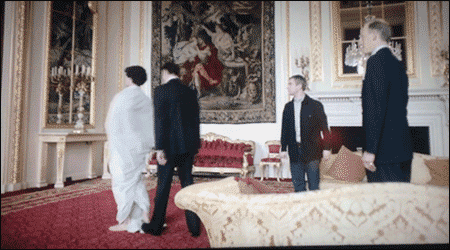
!NOTE!: Non-specified reader/insert, inspiration from SHERLOCK TV Show
~~~
The normal one
(Y/n) Holmes.
That was your name. Of course you loved your family, you held them all dear and close to your heart, but that name came with a lot of baggage and responsibility. You’d often wonder what living life normally would be like, being born under a different name. These were just thoughts however, you knew in the end, you wouldn’t change a thing.
You were smart; there was no doubt in that fact, being born a Holmes provides such natural intelligence with ease. However, you would argue that you were anything but. You were a humble, gentle and modest soul, you were adamant in arguing that both your brother’s surpassed your measly intelligence without effort. Of course, the IQ tests would prove otherwise, but they were rid from the world quickly after there creation.
Living a normal life wasn’t something you detested, rather you grew rather fond of the mundane routines people lived day-to-day, it was funny watching them fuss over little mistakes, or creating the emotion of happiness with simple gifts and pleasures. You worked as a psychologist funnily enough. You could deduce much like the rest of your siblings, and decided to apply that skill toward something complimentary.
You were a young prodigy with a psychology major at only 26 years old; you lived a very financially stable life with your own private at-home psychology firm. You were comfortable with you life within London, you enjoyed being close to your family, and so it was never an option to live anywhere else. Often as a well respected personal to the community and the police, you were requested to provide psychoanalysis on victims, suspects or even the criminals themselves. You’d get paid of course, but your real motivation was helping you middle brother with his detective cases. Sometimes even the eldest would request your help, those were rare favours however.
Your brother’s wouldn’t admit it, but they absolutely adored you, you were the baby of the family and the most normal of them all. Your parents didn’t like to pick favourites but you were always the exception. Mycroft and Sherlock treated you like a child most often, they couldn’t wrap their heads around the thought of you growing up and maturing, when they looked at you, all they could see were those innocent orbs staring right back at them. This admittedly made them overprotective, which wasn’t necessarily a bad thing, but it was restricting.
You proved your intelligence and maturity every now-and-again, but you honestly didn’t mind their dotting. It showed the world that Sherlock and Mycroft Holmes were human too.
So when the two were on the way to your house, they were honestly surprised and both mortified when the Consulting Criminal Jim Moriarty of all people stepped outside of your house with a laugh and bid you farewell, hopping into a awaiting sleek black car and driving off smoothly. Sherlock and Mycroft had hidden themselves upon the sight, they weren’t stupid, but they were terrified for your safety. Did you even know the true identity of the criminal you’d invited inside?
Neither brother remembered if they’d disclosed that information to you or not, they tried they upmost hardest to give you the privacy you desired, as hard as that was. They weren’t very good at it, but they did try their best to shield you from their enemies. You were untrained in any sort of defensive arts like they were; you were utterly defenceless if someone attacked you.
Nodding to each other, once they were satisfied with the distance Moriarty’s car had driven away; they quickly made their way to your doorstep and hurriedly rang your doorbell. You needed to be warned straight away, you needed to cut your ties with the villain immediately. Your safety was compromised.
You greeted them with a kind smile as always, both brothers nearly forgot the urgency and softened upon your sweetness, but reality was quick to return to them. They ushered you to let them inside, which you calmly did so, asking if they wanted any snacks or tea. Mycroft paused and politely requested some sweets and both brothers of course agreed to some tea. You chuckled at them, reminding them to make themselves at home; they were family of course, no matter how dysfunctional. The two elder Holmes watched you like hawks as you waddled around the kitchen. It was cute that you inherited their mother’s much shorter height, leaving you struggling and whining about reaching items on the top shelf. Though your brothers were more than willing to help, they teased you often about this fact.
Returning to the living room, you gently placed down the tray with balanced drinks and sweets situated on top.
“So, to what do I owe the pleasure of your visit?” Theo chimed, cradling his own cup of tea close and bringing his legs to his chest, curling into his usual ball-like position on his single seated couch.
Sherlock was first to speak, “Well, originally we both decided to check-in on you, we hadn’t seen you in a while.”
You chuckle, “Yes, well I was having a fantastic time in New Zealand. You should visit if you have the chance, it’s beautiful country.”
Sherlock rolls his eyes, completely disinterested in the idea. But he admired your simplicity.
“Like Sherlock said, that was ‘originally’.” Mycroft pressed, narrowing his eyes at the detective.
“Who was that man that left your house moments before we arrived?” Sherlock questioned, though he already knew, he wanted to see if you were aware.
You rolled your eyes at the two overbearing brothers, “That was one of my clients, of course.”
“He’s dangerous, (Y/n-“
“Jim Moriarty.” You finished, “A charming man, to say the least. The infamous consulting criminal.”
Mycroft and Sherlock frowned, this couldn’t be good.
“You know who he is.” Sherlock stated.
“Of course, I do.” You retorted, “But that’s not my business, is it? I’m a psychiatrist and psychologist; my client’s background means nothing to me. That is my work.”
“Yes, but it’s also a hazard-“
You interrupted Mycroft, “Without Moriarty confessing to future crimes in the motion, I have no legal standing. Past crimes are useless.”
“A scientific priest.” Sherlock grumbles.
“In some ways.” You agreed absentmindedly. “I’m bound by my word.”
“Then I suppose there is no use asking you to share some details.” Mycroft sighs.
“None at all.” You chirped, “Now, if you two are free this afternoon, would you care for some fish ‘n chips? It’s been a long while since we’ve talked like this.”
Mycroft pursed his lips, it was his favourite food. A Holmes delicacy in some ways, as even Sherlock was fond of the food as well. Mycroft frowned, a defeated expression forming on his face, “I suppose, I have time.” He admitted.
Sherlock narrowed his eyes at your happy face, you were sweet and innocent, but boy did you now how to use that to your advantage. Those damn puppy eyes.
“Fine.” Sherlock sighed.
Suddenly a knock sounded at the polished wood of your door, you furrowed your brows in confusion, not expecting any clients or guests over at this time. Standing, you gestured for your brothers to stay put while you answered the door.
Sherlock and Mycroft tensed as Moriarty waltzed into the house, smirking at the two of them confidently. He looked more than comfortable in your home, and both the protective brothers felt their instincts flare in that instant.
“Sorry to intrude, I believe I forgot my jacket.” Jim swooned, slinging his arm over your shoulder as you rolled your eyes and led him away from your siblings and into the office/ library room, where all your clients reveals their deepest secrets and feelings. Sure enough, Moriarty returned to the front door with his suit jacket under one arm.
He seemed to be talking normally to you, joking and laughing as if he were just a mundane human male, like all the rest. It was obvious to the brothers, that you and Moriarty knew each other quite well, they didn’t like that one bit.
Jumping to his feet, Sherlock decided he’d had enough of seeing that smug face and those evil beady little eyes looking at his youngest sibling.
“Leave.” Sherlock simply ordered, holding open the door for the mastermind to exit. Jim raised an accusing eyebrow at the new emotions Sherlock provided him with, but decided to play nice and do as he was told, for now at least. He left quietly, ignoring the slam of the wooden door after him; he was far too satisfied with this new discovery to care about rude behaviour.
He was originally just curious about you, intrigued and fascinated. He didn’t even know you existed; it wasn’t until Eurus cooed about you during his visit. She was smitten by you, couldn’t stop remembering all those memories as young children, when you’d follow her around, listen to her every tale with admiration and love. She talked about you as if perhaps you were a god, a higher being that she prayed to- or a rare exotic creature like most thought fantasy. You seemed too good to be true.
Yet here he was, obsessed with it all. Obsessed with you.
The expression of your brother’s were both the same, stern beyond belief. And you sighed, anticipating the emerging argument to take place.
“This is my job.” You stated, smile vanishing with the seriousness of your tone.
Mycroft and Sherlock almost didn’t recognise you, you looked different without the aura of sweetness drifting around you like a halo. They’d never seen this side of you.
Mycroft clears his throat, “He is dangerous, (Y/n). We would be fools to-“
“Then be fools.” You hissed, “This is my job. The career I’ve strived for, and Jim Moriarty is a normal client. You will not drag me around under the guise of your ‘safety’.”
Sherlock watched you carefully, scanning your expression and body language, trying to deduce you. Yet he came up with nothing. Normally you were so open to him and Mycroft, usually it was so easy to pull you apart, dissect every emotion and activity you’d been up to for the past week or so. But you’d shut down that gate, preventing any clue to find.
But then your shoulders slumped, and suddenly everything came flooding back, he could read you like an open book once more.
Sighing you looked them both in the eye, “I propose this.” Instantly you had your brothers intrigued, “I’ll install a camera within my office. You may have access to its feed at any time, and I’ll send you both my schedule, if you so desire as well. However, due to patient-confidentiality, the audio will be wiped, you will hear nothing.”
Sherlock scowls at the idea, obviously wanting to hear the conversations you and Moriarty had, he wanted to know everything. Mycroft on the other hand was more open to the idea; he eventually gave a slow nod.
“Deal.”
“Great.” You clapped your hands together, smiling once more and instantly relieving the tenseness in your brother’s posture, “Now, how about that fish ‘n chips, eh?
In the end, perhaps you were not as normal as everyone believed.
#sherlock holmes#bbc sherlock#sherlock x reader#sherlock x you#sherlock x y/n#sherlock holmes x reader#sherlock holmes x you#sherlock holmes x y/n#sherlock fic#sherlock fanfic#sherlock fanfiction#sherlock holmes fic#sherlock holmes fanfic#sherlock holmes fanfiction#bbc sherlock fic#bbc sherlock fanfic#bbc sherlock fanfiction#benedict cumberbatch#Sherlock holmes x male reader#Sherlock holmes x nonbinary#Holmes sibling
238 notes
·
View notes
Text
Toothless (and generally most dragons) lost all his personality in thw.
Gone was the loyal, protective, intelligent, curious, silly, expressive, understanding, and sassy/snarky dragon we adored more and more through each new installment in the franchise.
Who is this puppy in thw and what did he do to Toothless?
Look me in the eye and tell me that if anyone, dragon or not, was to pluck Hiccup off his back and send him into the ocean to die, they wouldn't get a minimum of two blasts in the face.
Yes, Toothless is playful and silly and adorable, but only around the people/dragons he trusts, and especially around Hiccup specifically.
Otherwise, his guard is up, he is wary, and he himself has to evaluate whether or not someone is safe to be around.
"Hey, I guess Dean dumbed him down because he wanted to show the effects of domestication—"
Woah there, big words.
Domestication? The definition of domestication is "the process of taming an animal and keeping it as a pet or on a farm".
That is not what's happening on Berk.
Dragons were never pets to humans. (If anything, humans were their pets.)
They stood by the Vikings' sides out of their own volition, and were free to come and go as they pleased.
We see this clearly in GoTNF.
They wouldn't let a human they didn't trust so much as touch them, let alone allow them anywhere near their backs.
They are the ones that choose their riders, or if they even want one, not the other way around.
And they weren't exactly "tamed" either. Or rather, nobody tried to alter their nature and innate instincts.
In RoB, we clearly see that Vikings are the ones who adjust, who adapt accordingly, because dragons are gonna do what dragons do.
And those instincts of theirs were honed. They weren't tamed, they were trained.
The notion that wild dragons are more powerful because they're wild makes no sense to me, because while wild dragons have raw power and raw instinct, trained dragons arguably have more than that.
They learn to work with other dragons, and they're able to pull off some incredible moves, because their bodies are, well, consistently trained.
They go on dangerous missions on the regular, for fuck's sake. During which, they also have to think. The dragons aren't told what to do, nor are they steered by their riders constantly (and when they are, the dragons trust them to do so)
They can take the reins as well (and when they do, the riders trust them to do so), but most of the time, they both move together in sync, understanding what, and how it, needs to be done.
In what world would such a lifestyle weaken them, or threaten to erase their aforementioned instincts?
I don't get Dean's point.
And Hiccup? What's up with the poor decision making?
Because I know damn well Hiccup wouldn't let dragons take over Berk to the point where, within the first ten minutes of the movie , half of it collapses. An event which apparently everyone is used to, because nobody worries about it.
He put an ocean between Garff and a couple of dragons because of how incompatible they were, in terms of needs and way of life.
He relocated dragons constantly, so as not to overcrowd and/or to protect the Edge.
Even when he was, what, 15 in RoB/DoB, he was mindful of the way he handled situations, to ensure Berk and the Vikings wouldn't be overwhelmed with dragons.
He understood that it's impossible for thousands of dragons to cohabitate with humans, and with each other, peacefully and without chaos.
Not to mention, he respected dragon culture and understood that some spaces were not made for the human eye. He made such a big deal about revering Vanaheim, and you expect me to believe he'd be okay with just exposing a place called The Hidden World, a delicate draconic paradise?
And wow, way to go, let's uproot the ENTIRE village, and go searching for this place that we don't even know for sure exists? Yes, very responsible.
And why not just make a life-changing call without consulting anyone, or thinking it through, based on what you alone think is best, while you're at it? Sounds like a great idea.
It's not like in previous installments he always made sure to have a team huddle to discuss (or at least inform the group of) their next move, even in the tightest of spots and with the littlest time; no, of course not.
His leadership abilities, his tactical and strategic thinking, his caution, his conviction and determination? Gone. Erased.
Who is this guy in thw and what did he do to Hiccup?
And as for Toothless and Hiccup's dynamic in this movie, something that Astrid said bugs me to an unfathomable degree.
"You gave him his freedom back, what did you expect?"
Woah there, big talk.
This paints a horribly ugly picture. It makes Toothless seem like he'd been held captive by Hiccup, that if he could've flown on his own, he would never have stuck around this long.
Which, much like the rest of this movie, is a load of horseshit.
Toothless is just as free, if not free-er than, as the rest of the dragons. Because while all dragons love and trust their riders, and vice versa, nobody has a connection quite like Toothless and Hiccup (save for perhaps Valka and Cloudjumper).
Toothless could've been flying on his own for a long, long time now. But he didn't want it. He was vehemently opposed to the idea.
Why? Because to him, flying was no longer worth it if Hiccup wasn't right there with him. Because Hiccup took the loneliness out of flying. Because Toothless wanted nothing more than to be by Hiccup's side. Hiccup was the one that made flying worth it.
A major theme of this movie is learning to fly on your own. Toothless had to learn how to fly without Hiccup, and Hiccup had to learn how to fly without Toothless (I mean, personally I'd rather them remaining inseparable soulmates that are mildly codependent. I recognize it's not necessarily the healthiest dynamic, but fuck if I care)
Toothless did this through meeting his mate, and falling in love (no matter how horribly written and designed she is, and no matter how I personally would've preferred for the Hicctooth bromance to remain undisturbed).
He met a creature that he wanted to follow and be alone with, a creature that made flying alone, with nobody on his back, worth it.
And more importantly, Hiccup had to realize that he's not who he is because he has Toothless, and subsequently the dragons. It's the opposite.
This is growth, and the realization that they don't need each other is important.
But why the fuck does that mean they have to say goodbye?
I don't need most of the people in my life. That doesn't mean I don't want them here.
The point was that Hiccup doesn't need Toothless in order to be someone.
Not that he didn't need Toothless, period.
(Even if the point was simply that he didn't need Toothless, which I could concede to, that again doesn't mean that Toothless had to leave, and take the entire dragon population with him.
To me, that sends a message of "if you don't need them, then they gotta go".
It's not what outgrowing a friendship looks like, despite the fact that many people choose to interpret it as such.
Sure, this movie shows what outgrowing a friendship is; if outgrowing a friendship means making room in your life for other people. If outgrowing a friendship means you found romance. Which is ridiculous.)
___________________
To further clarify:
I am well aware the shows aren't canon.
This, however, doesn't change the fact that all these series tie in with HTTYD 2 really well, and that they make sense.
They expand on the characters and give us a better grasp of the world in httyd. They allow us to understand everything better.
When you only have, at most, 150 minutes to tell a story, every minute of it needs to somehow add to the plot. To further the narrative. There is very little time for fluff.
In a movie, it's practically impossible to properly explore the characters' different dynamics, to give everyone their own arc, to let the audience bask in the slow moments and to let the characters just be.
In a series, however? Well. You've definitely got time.
For someone who only watched the movies, it would be pretty damn difficult to understand the mis-characterization in say, Snotlout, Fishlegs and the twins.
You don't know these characters that well. You don't know the well-established dynamics between the gang in the same way that someone who's watched the series does.
Which is exactly why I think that people who've watched them are the ones that dislike the hidden world the most.
I, too, am usually opposed to using non-canon material to make a point, but RoB, DoB and RTTE are the only spin-off series from a successful movie franchise I can name that make perfect sense. That succeed in accurately portraying the main cast, in realistically expanding on the secondary characters (like Fishlegs, Snotlout, and the twins, who now have the space to become part of the main cast), and in smoothly integrating new characters.
They also manage to beautifully explore this magical universe full of dragons, adventure, and mystery, while firmly establishing the dragons as an important part of ecosystems all around.
Whether it's subconscious or not, they create an unshakable image of how all the characters think, act, and interact. You spend a hell of a lot longer with the characters in a lengthy eight season series than in two movies.
But it's not a bad thing, because this image carved by the series fits in nicely with the image carved in all the canon installments of the franchise.
Well. Except for one, cough cough.
#and don't get me started on the rest of the cast's characterization#along with their dynamics and interaction with each other#my anti thw agenda#thw criticism#thw slander#thw salt#this rant is a mess#and possibly nonsensical#and i possibly veer off topic a million times#not sure#hiccup haddock#toothless#exactly because i love them so much do i hate this movie with such vitriol#analysis#long post#gratuitous use of the words “dragons” and “humans”#the hidden world#rtte#httyd rob#httyd dob#besides#if the series were canon then thw would make significantly and i mean SIGNIFICANTLY less sense#still the fact that you don't even NEED to bring them up to explain why the movie sucks is a pretty good indication#that even without their existence thw would still suck#though it would be less obvious#hictooth
135 notes
·
View notes
Text
Signal president and AI scholar Meredith Whittaker has noted that “AI” is really a marketing term rather than an accurate description of the technologies in question. Venture capitalists have a vested interest in selling us on both extreme promise and peril to attract funding, sell products, charm regulators, and discipline labor. The specter of AI is similar to hiring consultants in that it diffuses responsibility and provides a reverse justification for bosses to do what they wanted to do in the first place. Actually existing “AI” cannot write quality articles or scripts; whatever text it generates would need to be reshaped by a human hand in order for it to be even semi-useful. But this provides the perfect excuse to pay your workers less to be AI content editors rather than staff writers.
[...]
The most important thing to understand about the current wave of “AI” speculation is that, beneath the hype and sheen, everything is a labor story and everything is an ecological story. Technology is not magic, it is a product of the material world and therefore has inputs and outputs like anything else. In a time of escalating climate and environmental crisis, who gets to decide whether we should be using copious resources—and all the consequent greenhouse gas emissions and ecological degradation—to train and run more large language models? And who is getting exploited for it? What, where, when, and how technology is researched and deployed should be determined democratically—by and for people—rather than by billionaires’ whims.
132 notes
·
View notes